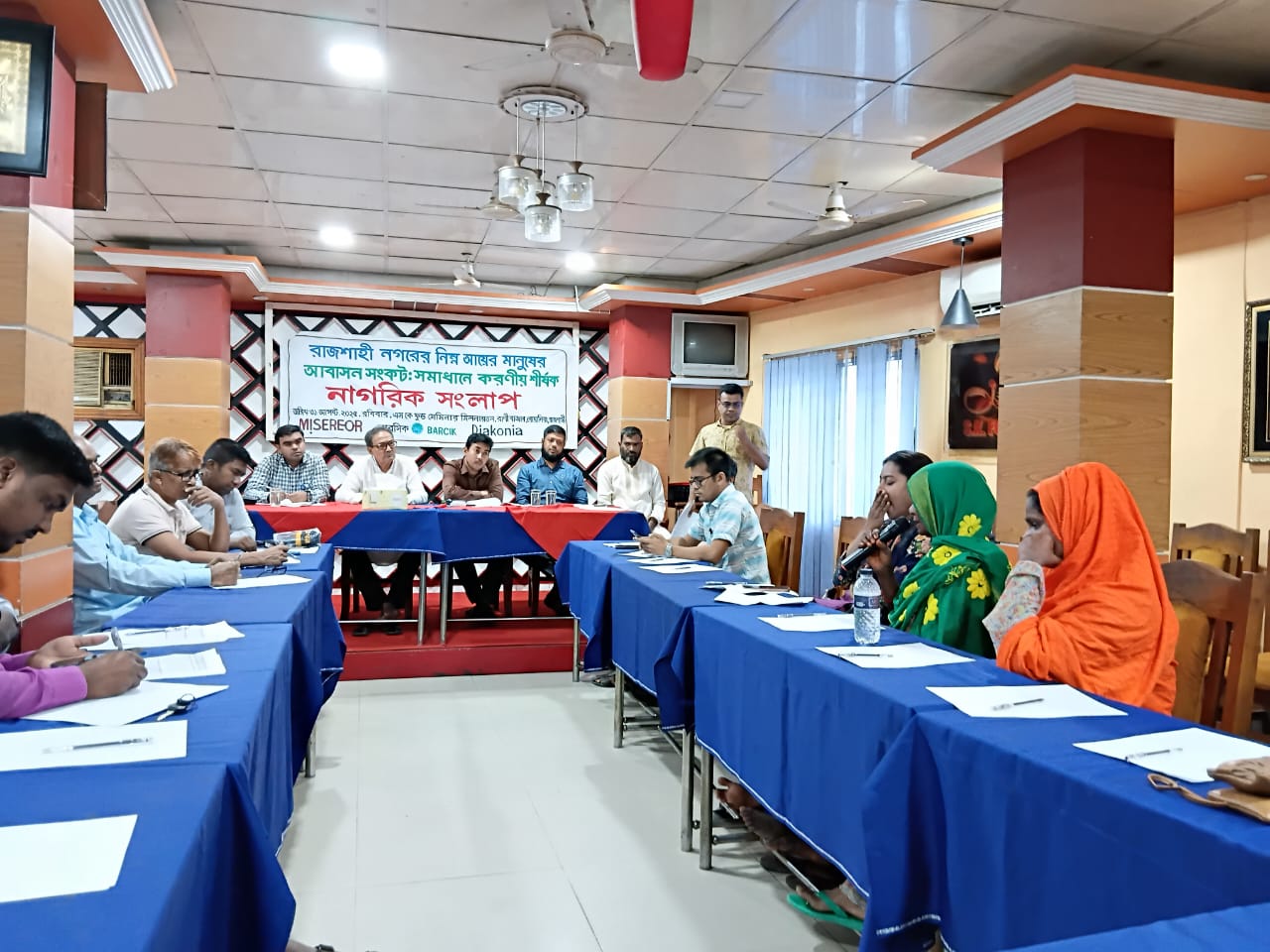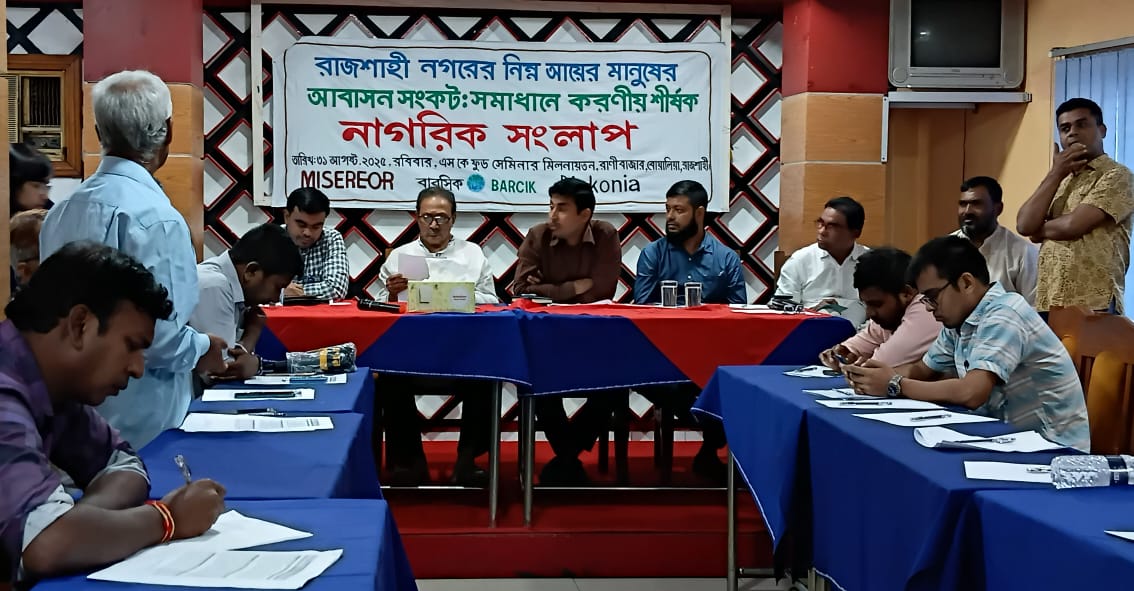By Amit Sarkar from Rajshahi,
A citizen dialogue on safe and sustainable housing for low-income people was held at SK Food auditorium in Rajshahi’s Ranibazar recently, organized by BARCIK. The dialogue highlighted the housing crisis, rights, and urban development issues of urban poor living in the slums, many of whom migrated to the city due to climate change and natural disasters.
Representatives of slum communities, youth groups, journalists, civil society, and officials from Rajshahi City Corporation, Public Works Department, RDA, and the Housing Authority participated in the event. The session was chaired by Mahabub Siddique of Rajshahi Green Coalition, while Shahidul Islam of BARCIK moderated.

Speakers said that around 35% of Rajshahi’s nearly one million residents live in slums on khas land, rail lines, and canal sides. Many lost homes and livelihoods to floods and droughts and still lack safe, hygienic housing.
While sharing her stories Zahida Begum of Budhpara slum recalled losing her home in the 1988 floods in Natore before settling in Rajshahi. She said, “We have lived in risky shelters ever since. As citizens of this city, we want a safe place to live.” Papia Sultana from Choddopai slum said that repeated floods and droughts destroyed her farmland, forcing her into unsafe housing. Others described constant threats of eviction, poor sanitation, and health hazards. Meanwhile, Harijan Colony leader Joydeb Kumar said, “We keep the city clean, yet remain neglected. Safe housing and dignity are our rights.”
Youth and civil society members stressed that slum dwellers are taxpayers and essential service providers. The rickshaw pullers, domestic workers, day laborers are yet remain excluded from housing opportunities. They urged the government to allocate khas land for housing projects, calling it both a moral duty and a development necessity.

Rajshahi City Corporation’s development officer Azizur Rahman said, work is ongoing to improve slum conditions but land complications pose challenges. Public Works engineer Shah Alam suggested multi-storied housing through public-private partnerships. RDA town planner Sadrul Anam emphasized on coordinated efforts and updating khas land records.
Chairperson Mahabub Siddique in his concluding speech said, “Slum dwellers are part of Rajshahi’s fabric. Ensuring their housing is not just a matter of justice but a policy obligation.”
Participants agreed that without safe and permanent housing for urban poor, urban development in Rajshahi will remain incomplete.
